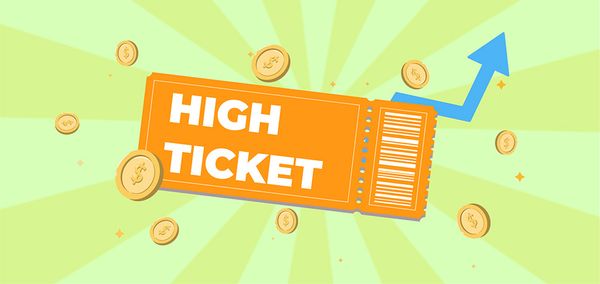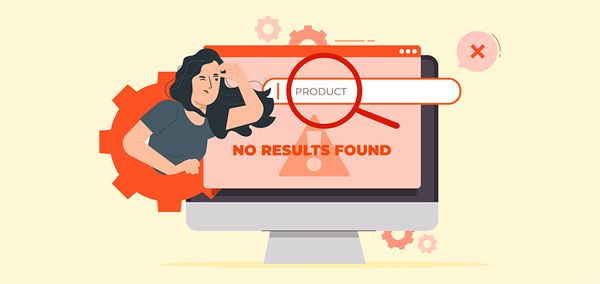What Is Residual Income & How to Earn It

Looking for ways to build financial wealth over the long term without adding more work to your daily life? Residual income helps you increase your wealth passively. You have a chance to earn cash while eating, sleeping, and brushing your teeth. With the proliferation of online platforms and opportunities, residual income is easier to achieve than ever before.
If you're like many others not knowing what residual income is and how to achieve it, there is a guide on how to build residual income and effective ideas of how to realize residual income that will pay off handily.
What Is Residual Income
While residual income can be used to describe the amount of net income after all costs are paid, it also refers to the amount you continue to generate after you have completed the initial work. There are countless ways to make money, but some are more time-consuming than others. For example, active income is when you act or provide services directly for money, including salaries, wages, commissions, and income from businesses in which you are actively involved. You will be paid for the work you perform once or regularly.

Residual income, by contrast, is income from investments that exceed the minimum rate of return. With residual income, you don't need to be present to get paid. Some argue that you don't need to be involved at all to keep residual income growing, while in fact, you may need to keep an eye on operations from time to time. Nonetheless, residual income involves significantly less time than active sources.
In addition to the fixed sources of income, residual income allows you to diversify your income stream. Instead of relying on your standard salary, you may make money from royalties on books or a dropshipping store. The diversity of income adds security and depth to your overall financial portfolio. Like passive income, residual income provides you with more financial stability, lifestyle flexibility, additional retirement savings, and a more robust financial position.
Types of Residual Income
Residual income may have different meanings for different entities. Here are 3 types of residual income.
Personal Finance
In personal finance, residual income is called disposable income. After all monthly debts are paid, the remaining income is calculated each month. As a result, residual income often becomes an important part of obtaining a loan.
The bank evaluates the amount of residual income left after other debts have been paid each month. The larger the residual income, the more likely the lender is to approve the loan. Because a sufficient residual income level indicates that the borrower can fully pay the monthly loan payment.
Corporate Finance
Managerial accounting defines residual income in an enterprise environment as the amount of operating profit remaining after paying all the capital costs used to generate revenue.
It is also considered a company's net operating income or the amount of profit that exceeds its required rate of return. Residual income is typically used to assess the performance of capital investments, teams, divisions, or business units of a corporation.
Equity Valuation
In equity valuation, residual income represents an economic income stream and a valuation method that is used to estimate the intrinsic value of the company's common stock. The residual income valuation model estimates the company as the sum of the book value and the present value of the expected future residual income.
Residual income attempts to measure economic profit, which is what remains after deducting the opportunity cost of all sources of capital. Given the opportunity cost of equity, a company can have a positive net income but a negative residual income.
Passive Income vs. Residual Income
One reason for the confusion between passive income and residual income is that people can earn residual income when they obtain passive income. For instance, a man starts a dropshipping business and decides to keep earning more passive income. He shares the affiliate links of the products he sells. People who buy the products via affiliate links will help the man get passive income. After deducting the tax paid for the overall affiliated income, the rest is residual income.
Income is money received by an individual or business entity for services rendered or investments made. Passive income and residual income are the two main types of income. The two terms are often used interchangeably, but they are fundamentally different. While residual income may be passive, passive income is not always residual.
Passive income is money earned in a business that involves little sustained effort. Residual income is not exactly an income, but a calculation used to determine how much discretionary money a person or entity spends after paying the bills and meeting its financial obligations.
7 Ideas for Making Residual Income
Getting residual income streams is a great way to earn passive income. It enables you to create a boost to your net worth and is essential to building true long-term wealth.
1. Dropshipping
A dropshipping business is essentially an online store where people can buy different items. When a customer places an order in your store, the order is sent to a third-party supplier, who then ships the product directly to the customer. This means you don't have to worry about storing inventory or how to get items to customers.
| Get Started Now to Grow Your Online Business with the Best AliExpress Dropshipping Tool - DSers! |
Therefore, starting a dropshipping business can be one of your best sources of residual income. Because the supplier handles the main aspect of your operation, namely order fulfillment, you will reduce active work such as shipping and customer service. First, you can create an online store on Shopify. Once complete, install the dropshipping tool DSers to find trustworthy suppliers on AliExpress for your dropshipping business.
2. Start a Blog
Blogging is a great way to work from home and earn an extra income. Starting a blog is cheap and fairly easy. For less than $10 a month, you can get your blog up and running. Blogging can be a great way to earn extra income, but that doesn't mean it's easy. In fact, it's not particularly passive. Creating a successful blog that makes money takes time and a lot of effort. However, once you learn how to make money, blogging can provide some considerable sideline income.

Bloggers usually make money from the products/services they sell or from advertising revenue. On the advertising side, bloggers are often paid either through direct ads they place on their sites (for example, banner ads) or through affiliate marketing.
Affiliate marketing is a kind of advertising that promotes a product or service. As mentioned above, when a reader clicks on a link or banner and completes an action, the blogger gets paid. So once you've written an article, you can continue to earn residuals from that article over and over again.
3. Stock & Bonds
Traditional investment is the idea of residual income. Don't let the word "investment" scare you. Starting to invest in your retirement account is one of the best ways to get residual income. If you're new to investing, it may seem complicated, but getting started is easier than ever.
There are dozens of online stock brokerage companies (like Merrill Edge, Fidelity, and E*TRADE) that can help you get started, and a few of them do most of the work for you! Many platforms allow you to decide how much to invest each month and choose the amount of risk you are comfortable with. The program then selects a portfolio for you.

Participation in the stock market can be either active or passive, such as setting up a Robo-advisor account, in which a computer algorithm does the work for you. There is a whole range of options in between if you choose to open a brokerage account and build index portfolios yourself. Either way, investing can help you generate a passive income that increases your overall residual income.
4. Short-Term Rental
Renting out real estate requires more than just finding tenants willing to sign leases for a year or more. With the advent of short-term rental sites like Airbnb and Vrbo, individuals can rent out their homes or other properties in smaller increments. They can also set their lease terms. Even renting an empty room can generate residual income if the house owner doesn't want to rent the entire property upfront.

For example, if a person wants to go on vacation, they can rent out their home while they are away. It’s an opportunity to do so with minimal extra work. The risk, of course, is that you let strangers stay in your home, and there may be security costs and risks associated with that. The tip is to choose your tenant carefully.
5. Write a Book
Are you an expert on a niche topic? Got a knack for words? Why not try to share your knowledge and writing talents by drafting a book or ebook? Most drafting contracts include royalties, which means you get a certain amount of money for each book you sell. Once the book is written and drafted, it will continue to generate residual income for years to come.
E-books, which can be drafted through sites such as Amazon Kindle Direct drafting, are an increasingly popular option. Because these books are self-drafted, the process is faster, allowing you to build residual income faster than the traditional drafting route. Whether it's a romance novel or a life guide, you can make a book and sell it within weeks.
6. Create an App
Apps are everywhere these days, from laptops to phones. Why not cash in and earn some surplus income by making your own? If you have the skills, you can build an application that could give you a lot of residual income. Building the app and submitting it to Google Play or the Apple App Store (or both) is the first step in allowing the rest to come in.
You don't necessarily need coding skills to build applications. If you have a vision for the next best application, you can hire the right designer and coder. Sure, this may cost you money on the front end, but you'll probably have residual income for years to come.
An outstanding example is the app Clubhouse (an invite-only social audio app). Clubhouse allows people to join the online room to listen to conversations between hosts and guests. Elon Musk, the founder of Tesla, SpaceX, and many other companies, has joined Clubhouse for his first-ever in-person live session. Musk has brought high traffic and wealth to the developers and owners of Clubhouse.
7. Grow Instagram Followers
Of course, growing Instagram followers requires some upfront work. But once you've built a loyal fan base, earning residual income is easy. First, create an Instagram profile and start posting for a niche market segment. In the meantime, use the Instagram hashtag to expose your posts to a wider audience.
While you may not be able to gain a following like any top Instagram influencer, there are a lot of benefits to be gained by running smaller Instagram accounts that focus on niche markets. Businesses in your market segment will see the people you attract as valuable to them because they may be targeting a similar audience. If they choose to sponsor your content, this can be a significant residual income for you.
Final Word
Everyone likes the idea of earning extra income, but not everyone can create secondary income streams. This could be due to a lack of strategy or real advice.
Now you know what residual income is and the differences between residual income and passive income. And with these residual income ideas in mind, you should be able to earn more income passively.













 Company
Company
 Why Choose DSers
Why Choose DSers
 Blog
Blog
 Help Center
Help Center




 Live Chat
Live Chat